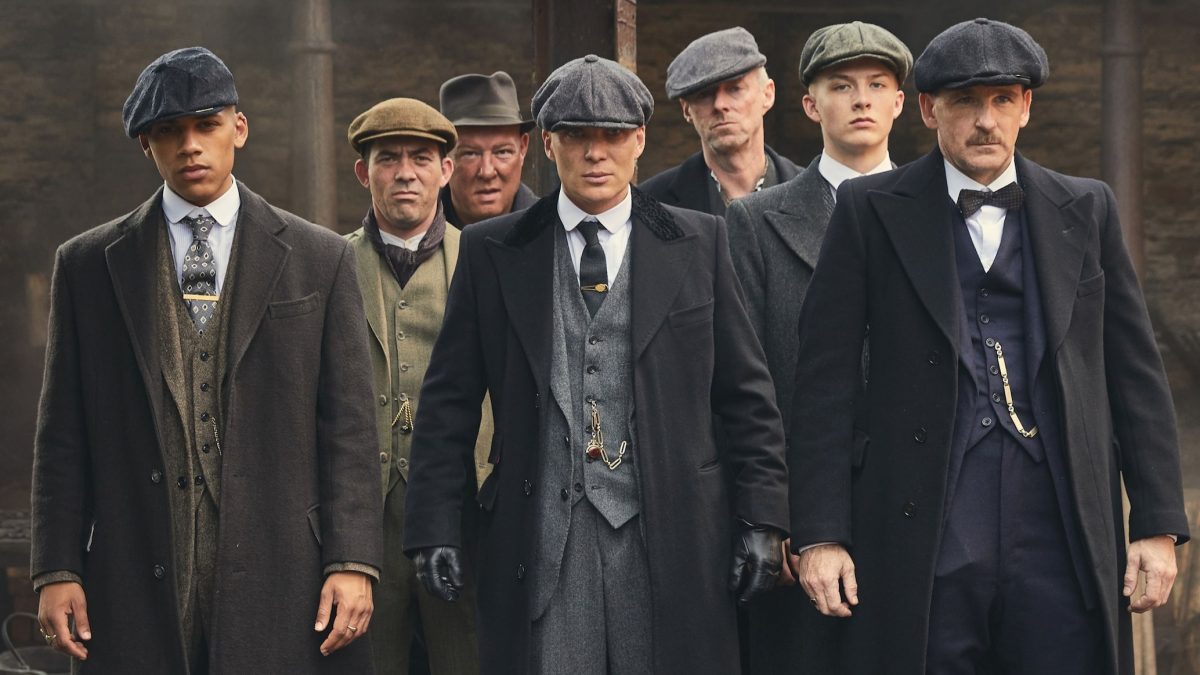Peaky Blinders is a titan of modern television.
From humble beginnings, the BBC show has gone from strength to strength over its soon-to-be six series and became Netflix’s most-watched programme during 2021.
Its global audience, in the tens of millions, are noted for their fandom of the authenticity, action and style of the show, which has changed subtly with each season.
Of course, countless elements of directing and production come together to create the feel of the show.
I’d like to focus in on just one, though; the soundtrack.
When it comes to the culture of any piece of television or film, audio is absolutely fundamental.
One of the finest current exponents of the ‘needle drop’, Quentin Tarantino, described his process for threading music into film in the following way:
“One of the things I do when I am starting a movie, when I’m writing a movie or when I have an idea for a film, is I go through my record collection and just start playing songs, trying to find the personality of the movie, find the spirit of the movie.”
“Then, ‘boom,’ eventually I’ll hit one, two or three songs, or one song in particular, ‘Oh, this will be a great opening credit song.’”
It goes without saying that in order to become such a successful show, Peaky Blinders has similarly mastered its use of music.
Whilst creator Steven Knight may have a different approach to Tarantino in terms of when he adds this sonic flavour to his work, his choices in genre and artists are fascinating.
For example, if we go back to the most recent occasion on which we saw Tommy Shelby and co., in Series 5, Episode 6, the use of IDLES’s ‘I’m Scum’, and in another scene ‘Never Fight a Man With A Perm’ are glorious.
Of course, I’m speaking as an IDLES fan here, but even for first-time listeners of the music, the pointed lyrical content and brash, spiky guitars elevate the two scenes to another level.
The latter particularly marries when laid over the top of Sam Claflin’s Sir Oswald Mosley entering Bingley Hall.
‘A heathen, from Eton, on a bag of Michael Keaton’ sings IDLES’ Joe Talbot, just as the aristocratic Mosley prepares to incite the bone-headed fascist violence of 1930s Britain.
Music like IDLES’ is a gift for a director like Knight; it’s raw and unadulterated, tailor-made for a ten-second move that tells the audience to sit up.
Similar bands are scattered throughout the five series of the show, from Arctic Monkeys to Royal Blood, Foals and The White Stripes.
These choices are deliberately impressing connotations of rock ‘n’ roll swagger to the show’s characters, but also crucially smashing the divide that could be created between the audience and the 1920s setting.
It may not be for the purists, but to foster a loyal and active audience, the musical influences of Peaky have been ever so successful.
The modern approach doesn’t always hold in the show, however, and I would like to give you an example of where this technique is eschewed entirely to create an equally effective result.
Series 4, Episode 3 – ‘Blackbird’ – contains probably my favourite needle drop of the programme’s entire run.
On the eve of a general strike, trade unionist and regular Shelby sparring partner Jessie Eden is in her home, drinking from a bottle of Mitchell & Butler’s bitter with the fire on.
Eden – played by Charlie Murphy – literally drops the needle on her gramophone to play ‘Bye Bye Blackbird’ by Gene Austin.
The song is interrupted by Shelby’s entrance, but after the two trade barbs and rue lost lovers, the tune returns with a beautifully forlorn effect.
On this occasion, the overall message is quite a simple one, and that’s just fine.
Fundamentally, music is unlikely to be effective in television if its thematic role isn’t served within a couple of seconds.
The choice here avoids any risk of that and is ultimately what makes the scene truly memorable.
Credit should go to Knight for that.
Not all shows suit the genres of music used here or even suit popular music at all.
But it is rare to find a programme that does quite as good a job with its sonic elements as Peaky; particularly on such a consistent basis.
In Series 6, certain favourites should be expected to return; PJ Harvey, Anna Calvi and, of course, the show’s musical cornerstone, Nick Cave & The Bad Seeds.
It’ll be just as exciting to find out what’s new on the soundtrack and revel in how it elevates Knight’s storytelling, with another music lover, Cillian Murphy, serving as the star of the show.
For more insight into the musical choices behind Peaky Blinders, I’d recommend Murphy’s BBC Radio 6 podcast, and Knight’s various interviews, such as this one with NME.
Peaky Blinders Series 6 begins on Sunday, February 27, airing at 9pm on BBC One and being released on iPlayer at the same time.
Feature Image Credit: BBC Studios


